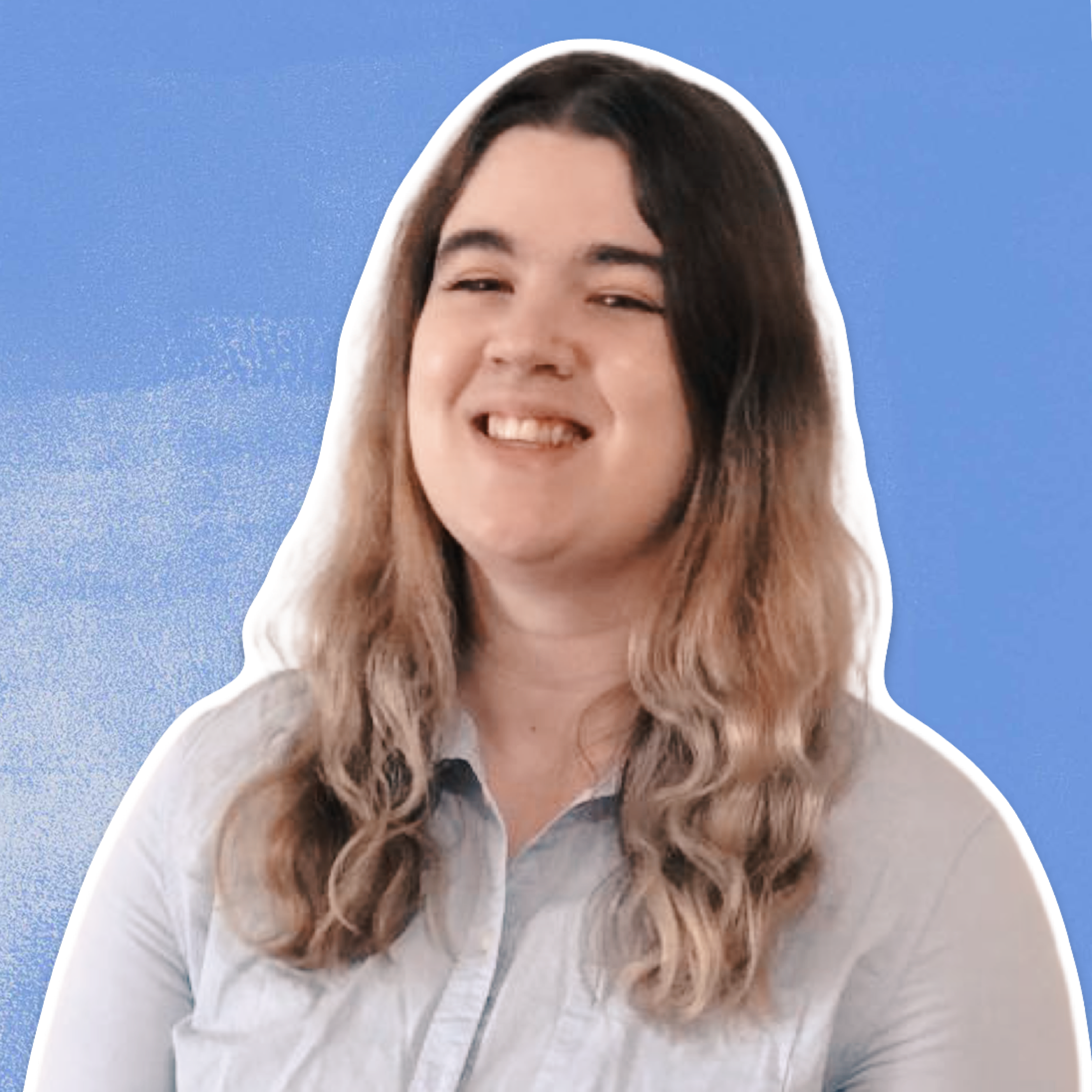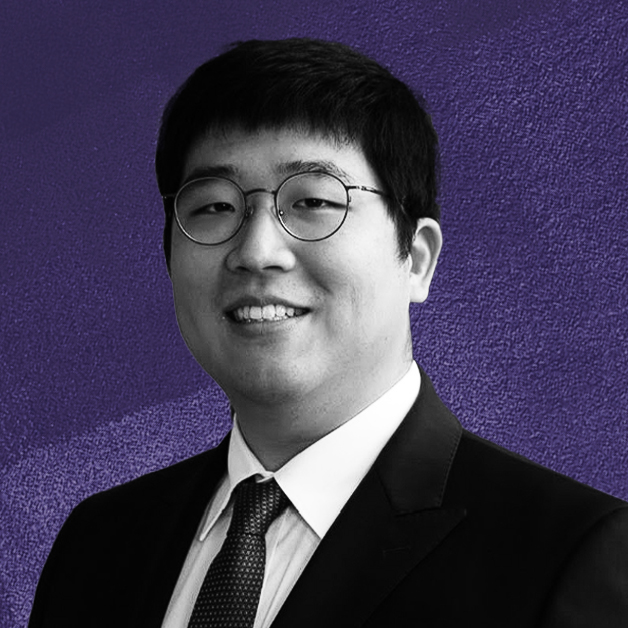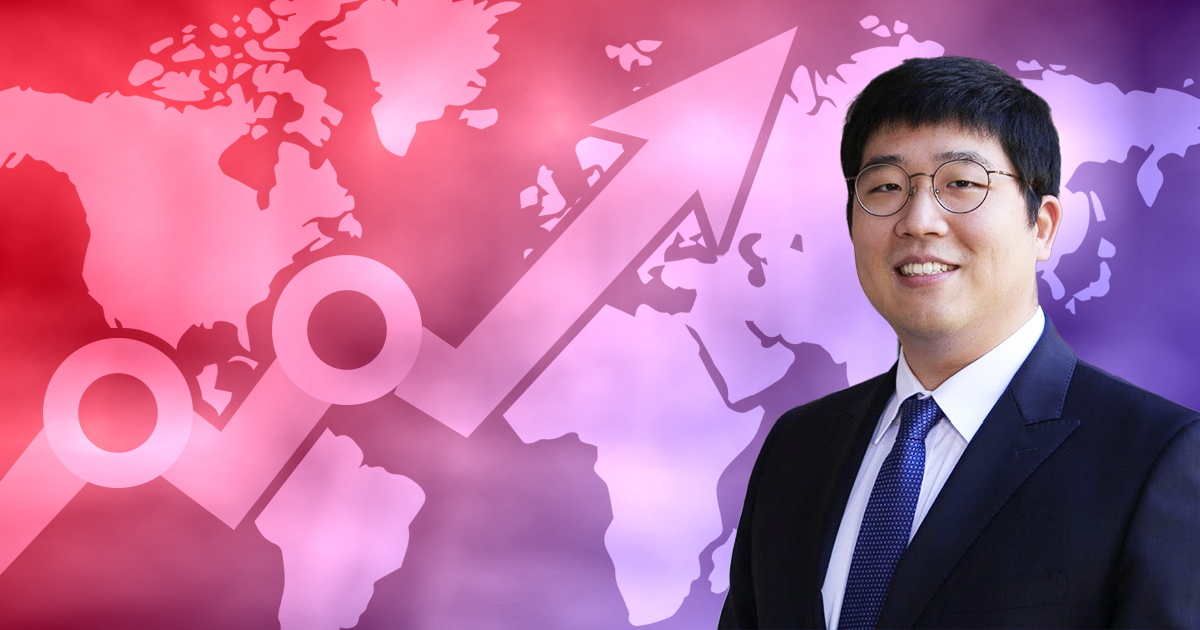
Darby Joyce
Content Marketing Coordinator
Kogod makes sustainability efforts a priority. Where combating environmental threats was once considered an issue for scientists, it’s clear that every field needs to consider its impact, and organizations must do what they can to adjust to the changing world around them. But as professionals face problems that they’ve never faced before; how can they ensure that they are not only answering today’s sustainability questions but also anticipating tomorrow’s?
The question is on Paul Yoo’s mind as well. Yoo is a new professor of finance at the Kogod School of Business with a research focus on sustainable finance, a field that’s gaining speed to match the urgency of the topics it covers.
“It’s vast,” he said of the discipline. “New questions are coming out much faster than the original questions are being answered. So even if I’m slammed with ongoing research on these topics, new topics will still flow in, and I’ll want to do something about them.”
As a field of research, sustainable finance addresses the relationship between environmental, social, and governance (ESG) initiatives and their financial impact. This can include how a business’s environmental footprint is reported, how ESG commitments influence investor behavior, and how values can determine where consumers spend their money. Yoo is particularly interested in the discipline’s ability to challenge existing notions and connect new ideas to financial concepts.
“What excites me the most is that these seemingly non-financial values have a financial value implication,” he explained. “Since this field is quite new, you find these surprising results that don’t necessarily align with the conventional wisdom. So, then you get to make sense of what you find and connect it to well-known, well-proven ideas.”
When Yoo talks about non-financial values and their financial implications, he’s talking about the issues at the core of sustainability’s values. It’s easy to see the importance of protecting human rights and reducing greenhouse gas emissions, but it’s often considered an issue beyond business disciplines. Sustainable finance aims to change that assumption by providing data that shows that making ESG a priority also has economic benefits—that even the most money-motivated businesses should be taking sustainability into account.
Conventional wisdom would say that the sole purpose of business is to maximize present and future profits. But I’ve found that the average investor actually rewards efforts that promote non-financial values.”

Paul Yoo
Professor of Finance, Kogod School of Business
“Making those efforts ultimately allows those businesses to raise funds in a way that they can use to grow further,” Yoo said.
By pursuing research on the financial benefits of ESG initiatives, Yoo and his colleagues slowly but surely reduce the existing tension between developing sustainable business practices and maintaining financial health.
For Yoo, it’s a perfect fit—not only does he have a natural passion for sustainability, but the topic is woven into his home life as well. “My wife is a statistician, but she has an even longer history as an environmentalist,” he said. “When you live with someone who feels equally passionate—if not more so—about environmental sustainability and gender equality, and who asks how we as researchers can champion those values, you can’t help but become even more immersed in ESG topics.”
Yoo developed an even deeper understanding of sustainable finance at the University of North Carolina at Chapel Hill, where he recently earned his PhD. For his job market paper, he explored companies’ motives for integrating ESG into their goals, a topic that he enjoyed due to its relevance and scope.
“A job market paper usually has to be quite original, as well as challenging and doable,” Yoo explained. “It was very appealing that the question of what drives ESG investing didn’t have a clear pathway or an obvious answer.” ESG in business is a hot topic now, but research on it only began in earnest in the early 2010s, meaning that Yoo had limited data to help answer his questions. Fortunately, his university supported him in gaining access to that data, allowing him to figure out what the numbers say about ESG motivations.
However, data wasn’t his only challenge in pursuing this research. Acknowledging the environmental and societal impact of business marks a significant shift in philosophy from previous generations, and Yoo found himself receiving pushback from more established professionals in the field.
“There are tenured professors and well-known economists who are accustomed to interpreting things in a very traditional and economical way,” he recalled. “So, if you start talking about how there can be financial implications for non-financial values, people begin to challenge you very quickly.” Yoo rose to the challenge nonetheless; if anything, he had extra practice explaining the validity of his work before successfully defending his dissertation this past spring.
Now that he’s earned his PhD, he’s looking forward to beginning his professorship here at Kogod. Yoo has been interested in working in academia since his undergraduate days; as the son of a professor, he took note of his father’s ability to balance teaching with pursuing his research interests and decided that he would enjoy having a similar balance. After earning a bachelor’s in financial economics from Columbia University, he spent two years as a research assistant at DC’s Federal Reserve Board. There, he supported his mentor’s research on monetary economics and was ultimately named coauthor on several projects for his contributions.
“That was where I got a feel for the highs and lows of research and what a research career involves,” he said. “I got to see firsthand what good can come out of doing this cutting-edge research and how you can impact literature and other practitioners.”
Yoo’s desire to make an impact makes Kogod a perfect place to continue his work. He’ll begin teaching courses during the spring semester, giving him the fall to wrap up ongoing projects and get to know his colleagues across the university. He’s thrilled to join a faculty of experts in all aspects of sustainability and looks forward to figuring out where he and his own expertise fit in.
Kogod is a leading frontrunner in educating students on sustainable finance, and it’s trying to be a leader in the research front as well.”

Paul Yoo
Professor of Finance, Kogod School of Business
“I really appreciate that the school values what I can bring to the students, and I’ll be trying my best to live up to those expectations,” he remarked.
Once he’s settled in, Yoo also hopes to develop a course that helps Kogod students bridge the gap between academic and practitioner discussions on sustainable finance. His experience on both sides of the conversation puts him in a unique position to inform his classes on the questions researchers ask and the hands-on implications of those questions.
“I can be an intermediary between the academic world and the practitioner world that many of our students will take a big role in,” he explained. “When they’re working and thinking about their own ESG efforts, it would help to know the key questions and also what can be done at the practical level so that they can implement something that’s both doable and meaningful.” With a combination of finance know-how and an enthusiasm for teaching, Yoo can give his students the means to think about the future’s biggest questions and turn that knowledge into practice in their careers.
